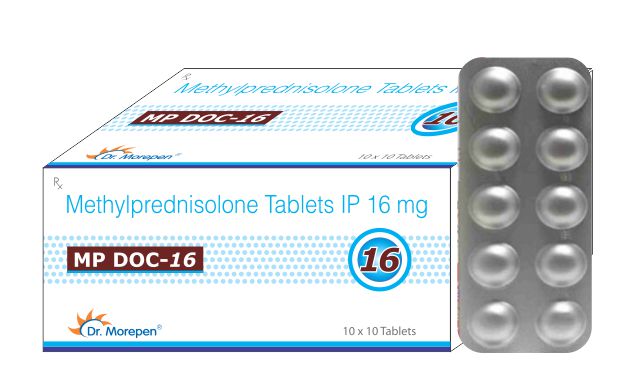Indications and Usage
Acid-related dyspepsia, Benign gastric ulcer, Duodenal ulcer, Duodenal ulcer associated with h. Pylori, Esophagitis, Gastric ulcer, Gastro-oesophageal reflux disease, Helico-bacter pylori positive duodenal ulcer, NSAID-associated gastric and duodenal ulcers, NSAID-associated gastric and duodenal ulcers (prophylaxis), NSAID-associated gastric or duodenal ulcers, Resistant ulcers, Zollinger-ellison syndrome.
Mechanism of Action
Methylprednisolone is a synthetic (man-made) corticosteroid. Corticosteroids are naturally-occurring chemicals produced by the adrenal glands located adjacent to the kidneys. Corticosteroids affect metabolism in various ways and modify the immune system. Corticosteroids also block inflammation and are used in a wide variety of inflammatory diseases affecting many organs.
Pharmacology
| Protein binding | 78% |
| Metabolism | liver primarily, kidney, tissues; CYP450: 3A4 substrate |
| Half-life | urine; Half-life: 18-26h (biological) |
Contraindications
Contraindicated in pregnancy, lactation, children .
Side Effect
Nausea, vomiting, heartburn, headache, dizziness, trouble sleeping, appetite changes, increased sweating, or acne may occur. If any of these effects persist or worsen, tell your doctor or pharmacist promptly.
Storage:
Tablets should be kept at room temperature, between 20 ° C and 25° C (68-77° F).
Disclaimer: The data uploaded is made from content already available on internet.The company holds no right of it and is not responsible for any wrong information.
